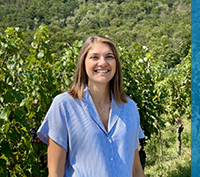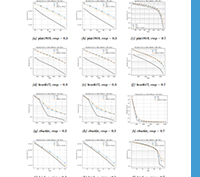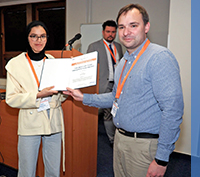PhD defence of Nathan Sylvestre
Nathan Sylvestre defends his PhD in Computational Mechanics and Materials on April 4th, 2024.
Effects of multiple mechanical recycling on PET blowability
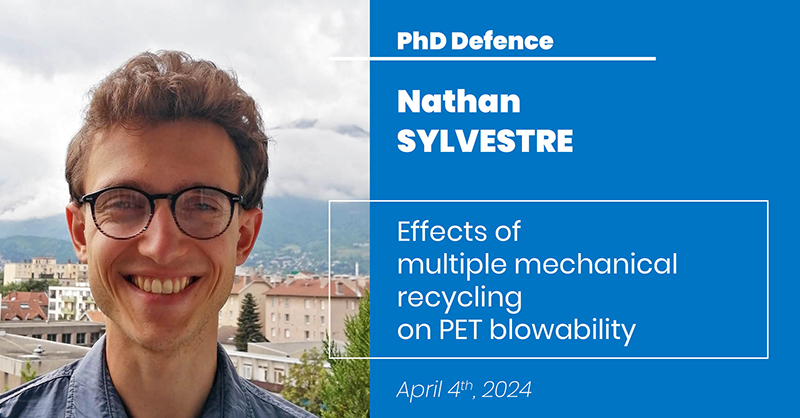
Nathan Sylvestre conducted his PhD work under the supervision of Jean-Luc Bouvard and Christelle Combeaud. He will defend his thesis in front of the following jury:
- Mme Anne-Sophie CARO, IMT Mines Alès, Rapporteur
- M. Grégory STOCLET, Université de Lille, Rapporteur
- M. Marc PONCOT, Ecole des Mines de Nancy, Examinateur
- M. Yann MARCO, ENSTA Bretagne, Examinateur
- M. Jean-Luc BOUVARD, Mines Paris – PSL – Cemef, Examinateur
- Mme Christelle COMBEAUD, Mines Paris – PSL – Cemef, Examinateur
Abstract:
The production of plastic bottles from recycled PET (RPET) contributes to the reduction of waste and the preservation of fossil resources. In practice, manufacturers have observed higher reject rates during the stretch-blow moulding of RPET bottles: whitening due to thermal crystallisation or over-stretching, unsatisfactory mechanical strength or, in the most extreme cases, bottle explosion during blowing. In this context, the aim of this thesis work is to better understand the variations in behaviour induced by mechanical recycling. To this end, a virgin PET and various mechanically recycled grades were characterised under static and dynamic conditions. Under static conditions, DSC analyses revealed a greater tendency for RPETs to undergo thermal crystallization. Under dynamic conditions, during tensile tests and free stretch-blow experiments (without the mould), RPETs show a lower limit of stretchability linked to structural hardening at a lower stretch ratio. On an industrial blow moulding line, the preform temperature must be higher for RPETs, in order to increase their stretch limit to the same level as virgin PET and thus obtain equivalent bottles. However, excessive heating leads to thermal crystallisation and opacification of the preform. The stretch blow-moulding parameters for RPETs must therefore be adjusted carefully, considering their specific behaviour compared with virgin PET, in order to obtain a bottle that complies with the specifications.
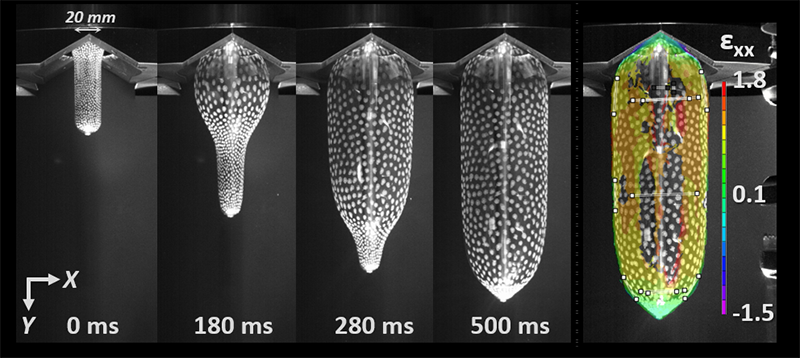
Free blow-stretch test (without the mold) of a recycled PET preform, and transverse strain fields obtained by image correlation
Keywords: PET, mechanical recycling, uniaxial stretching, free stretch-blow, time-temperature equivalence, crystallization


